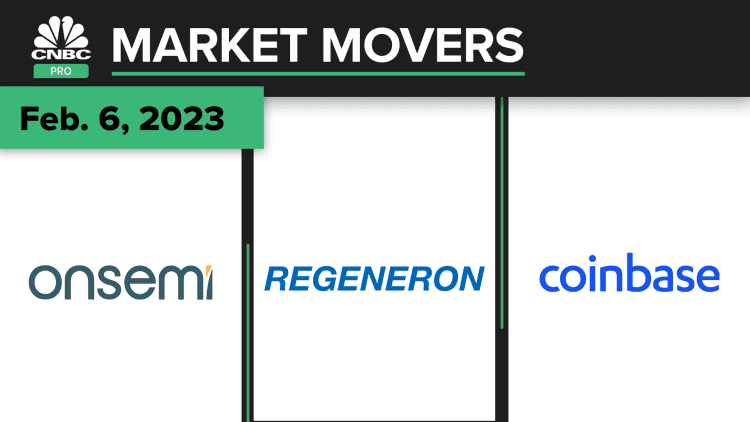
U.S. stocks fell Monday, led downward by the tech-heavy Nasdaq Composite, as investors grew increasingly cautious of rising bond yields.
The Dow Jones Industrial Average lost 34.99 points, or 0.1%, to end at 33,891.02. The 30-stock index made up some ground after losing more than 240 points earlier in the session.
The S&P 500 slid 0.61% to close at 4,111.08. The Nasdaq Composite posted the biggest loss of the three, sliding 1% to end at 11,887.45.
Investors were taking some profits after the stock market’s hot start to the year. The S&P 500 is up more than 7% for 2023, while the Nasdaq Composite has advanced for the last five weeks, a streak not seen since November 2021.
Treasury bond yields rose, with benchmark 10-year yield up by nearly 11 basis points at 3.64% and the 2-year yield adding around 18 basis points to 4.48%. The ICE U.S. Dollar Index rose as much as 0.76% Monday, further contributing to the decline in stocks.
Apple shed 1.8%, pressuring the Dow as concerns over higher rates weighed on some tech stocks. Retail stocks Target and Nike also ended the session down, while defensives such as Merck and Coca-Cola advanced.
“Most stock market participants are a little shook … by the huge increase in yields for a second straight day,” said George Cipolloni, portfolio manager at Penn Mutual Asset Management. “The move in the 2-year over two days is incredible. And I think that’s driving most of the moves.”
Monday marked the start of another week packed with earnings. Tyson Foods fell 4.6% on the back of a weaker-than-expected earnings report. The Children’s Place, a kids’ apparel retailer, lost 4% after it pulled back its outlook for its fourth quarter.
Disney, Chipotle, DuPont and PepsiCo are among the major companies reporting earnings later this week, which investors will be watching for any indications that prior interest rate hikes have hurt companies’ finances. With the earnings season about halfway over, profits for S&P 500 companies are on pace to be 2.7% lower for the fourth quarter, according to Refinitiv.
“Last week was kind of all about monetary policy and the Fed, the European Central Bank and the Bank of England,” said Tom Hainlin, the U.S. head of global investment strategy of U.S. Bank’s Ascent Private Capital Management. “This is really about corporate America and what they’re seeing.”
Investors will also watch Tuesday for Federal Reserve Chairman Jerome Powell’s remarks before the Economic Club of Washington. Last week, Powell’s comments on disinflation caused investors to bid shares higher and overlook another rate hike out of the central bank.

